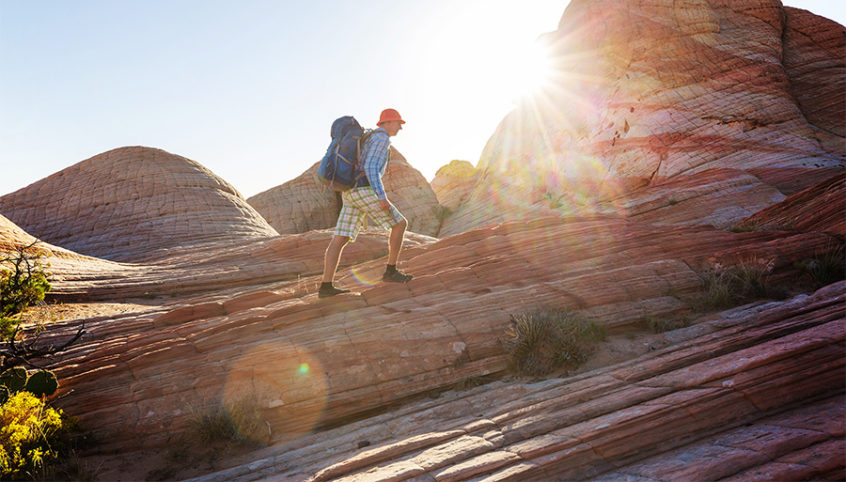Camping in Utah and the intermountain west is a beautiful, fun way to get exercise and to connect more deeply with family and friends – and nature. While these activities can greatly help with personal wellness, camping can lead to back pain.
Alex J. Nelson, MD and his staff often sees an increase in patients complaining of back and neck pain in the summer months—there comes a time when camping isn’t the carefree activity it used to be. Sleeping on hard, uneven ground (not to mention in a wildly different environment) can certainly interfere with your sleep. However, when does “camp back” become a potentially chronic problem and not a minor complaint that will go away when you return to the real world?
CAMPING CAN CAUSE A HERNIATED DISC?
It depends. Camping can potentially cause a brand-new problem like a herniated disc, or it can exacerbate an underlying issue you might not have noticed before. A safe, comfortable sleeping environment is critical for your well-being, and particularly the health of your back. A lot of people spend about eight hours per day sleeping, and that’s a long period to put your back in a compromised position.
Of course, a little stiffness and soreness while camping can be completely normal. However, if the pain is debilitating, seems sudden and sharp, or just doesn’t feel quite right, it’s important to see a medical professional immediately. Back pain can be caused by sudden trauma (including poor sleeping conditions), and the earlier the pain is treated the better the outcome.
3 WAYS TO PREVENT BACK INJURIES WHILE CAMPING
However, if you have a camping trip planned, there are a few things you can do to help prevent back injuries:
- If you have existing back pain, see a pain specialist before your camping trip. Any pain is a sign that something’s wrong. Since a camping trip can worsen pain and injuries, you want to make sure you know exactly what’s causing any current pain.
- Invest in quality sleeping pads. For many adults, a simple sleeping bag isn’t enough. There are several camping-specific sleeping pads available that can help ensure a safe, comfortable night’s sleep.
- Consider a cabin instead of a tent. It might be time to “upgrade” your camping to glamping. A little luxury can go a long way.
Schedule a pain consultation today
If you love camping but are worried about back pain, call Peak Health consultants today at (801) 689-3389 to schedule a pain consultation.

